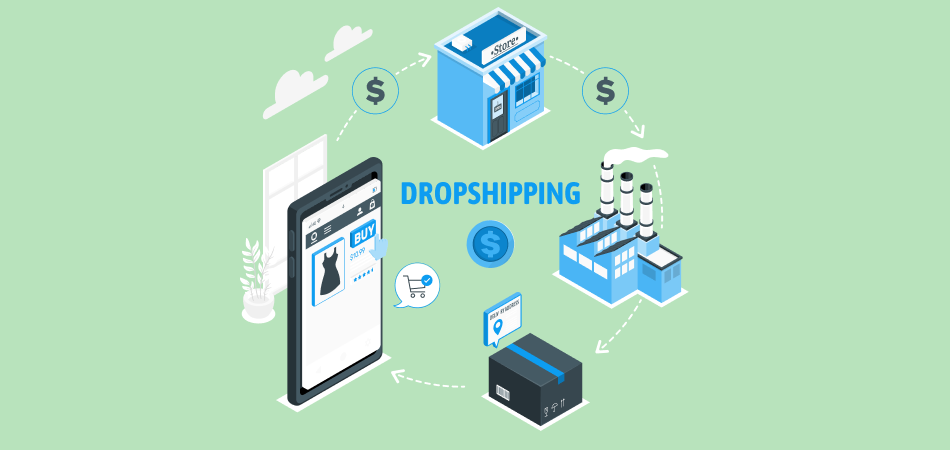What Is Persuasive Advertising - Definition and Examples

We all know advertising is a crucial aspect of modern business and that it plays a vital role in the promotion and sales of products and services. Thus, in the past decade, a number of advertising methods have emerged - from programmatic advertising to ambush marketing on billboards, the list is too long.
Advertising surely serves as a medium for businesses to communicate with their target audience and persuade them to take a specific action, such as purchasing a product. One type of advertising that utilizes this persuasive approach is known as persuasive advertising.
What Is Persuasive Advertising
Persuasive advertising is a form of marketing that seeks to convince or sway people to take a specific action, such as making a purchase, by presenting arguments and information in a way that appeals to the target audience's emotions, values, beliefs, or needs.
This type of advertising often relies on techniques such as emotional appeals, testimonials, and humor to create a connection with the audience and drive them towards the desired action.
Persuasive Techniques Used in Advertising
An umpteen number of techniques are used in persuasive advertising. Let’s delve deeper into some of them,
1. Emotional Appeal
Creating an emotional connection with the audience is a key element of persuasive advertising. This can be done through various techniques such as:
Storytelling: Using narrative and emotional storytelling to create a connection with the audience and evoke a desired emotional response.
Emotional appeals: Using images, music, and other sensory elements to evoke emotions such as happiness, fear, sadness, excitement, etc.

|
Place Orders to AliExpress In Seconds DSers Bulk Order - Place 100s of orders to AliExpress in a few seconds with a just few clicks |
Personalization: Addressing the target audience directly and highlighting how the product or service can improve their life.
Social proof: With the help of testimonials, endorsements, or statistics, you can show that others have found success with the product or service.
Humor: Using humor to create a lighthearted and memorable connection with the audience.
2. Fear Appeal
Fear appeal is a persuasive advertising technique that uses fear to motivate people to take action. This can be done by highlighting potential dangers or consequences of not using the product or service being advertised.
For example, an advertisement for a home security system may use fear appeal by showing images of burglaries and emphasizing the need to protect one's family and property. Fear appeal is often controversial and can be seen as manipulative. It can also backfire if the fear elicited is too intense or perceived as unrealistic.
Therefore, it is important for advertisers to use fear appeal responsibly and ethically, ensuring that the fear being evoked is proportional to the issue being addressed and that the advertised solution is seen as a credible and effective solution.
3. Testimonials
Testimonials are statements or endorsements from satisfied customers or experts that are used in persuasive advertising to build credibility and trust for a product or service. They are a form of social proof, which is the idea that people are more likely to take action if they see others doing the same.
Testimonials can be in the form of following formats:
- Written quotes
- Video interviews
- Case studies
It can be anything that highlights the experiences and results of others.
When used effectively, testimonials can be powerful in persuading potential customers by demonstrating the real-life benefits of the product or service being advertised.
Advertisers should be careful to ensure that testimonials are genuine and representative of the typical experience of the target audience. Misleading or fake testimonials can damage a brand's reputation and credibility, so it's important to be transparent about the sources and selection process for the testimonials used in advertising.
4. Social Proof
“When you say it, it’s marketing, when they say it, it’s social proof” - Andy Crestodina, Co-founder & Chief Marketing Officer - Orbit Studios
Social proof can be a game-changer in marketing. In fact, according to research, it was found out, about 55% of online customers consider reviews to be very helpful.

People often look to the behavior of others as a guide for their own behavior, especially when they are uncertain or facing a new situation. By showcasing the popularity or endorsement of a product by others, marketers can leverage social proof to increase the perceived value and appeal of a product.
Examples of social proof in marketing include:
- Customer reviews and ratings
- User-generated content (e.g. social media posts)
- Celebrity endorsements
- Social media followers and likes
- User testimonials
- Case studies and success stories
- Expert endorsements
- Product usage statistics
However, it is important to note that the effectiveness of social proof can vary based on various factors such as the source of the proof, the target audience, and the type of product being marketed
5. Scarcity
Next in the list is scarcity, which plays on the human psychology of desire and urgency. By creating a sense of scarcity around a product or service, marketers can increase the perceived value and urgency to purchase, as people are more likely to act when they believe that an opportunity is limited or running out.
Examples of scarcity in marketing include:
- Limited time offers and sales
- Limited edition or exclusive products
- Limited availability of a popular product
- A countdown timer to create urgency
- A limited number of units available
- "Last chance" offers
The list goes on.
Similarly to social proof, it’s important to note that the effectiveness of scarcity can vary based on various factors. It includes the target audience, type of product being marketed, and the credibility of the scarcity claim.
6. Expert Opinion
People often place high trust in the knowledge and credibility of experts in a particular field. By endorsing a product or service, experts can help increase its perceived value and credibility, and provide valuable insights and information that can help potential customers make informed purchasing decisions.
There are various ways you can go about it. Following are a few of them:
- Celebrity endorsements from experts in a related field
- Testimonials from industry experts
- Endorsements from academic experts
- Quotes and interviews with experts in print and online advertisements
- Product reviews and recommendations from industry publications and websites
With that being said, let’s move to the examples of persuasive advertising and see how marketers out there are already making an impact with the same.
Examples of Persuasive Advertising
Following we have discussed how aforementioned persuasive techniques are used by the marketers.
Food and Beverage
By creating an emotional connection to healthy eating, such as highlighting the joy of cooking and sharing healthy meals with loved ones, marketers can make healthy eating seem more appealing and enjoyable. And this helps them meet their marketing goals.
Beauty and Personal Care
Emotional appeals can also be effective in beauty and personal care marketing. Here, marketers highlight the impact on self-confidence and personal goals.
This creates a powerful connection between the product and the individual's desires, leading to increased likelihood of purchasing. Marketers use emotional appeals, such as emphasizing improved self-confidence and personal benefits, to tap into people's emotions and drive purchasing decisions.
Technology and Electronics
Generally, testimonials work very well in this category. By featuring real customers who have had positive experiences with the product, companies can create a sense of trust and reliability in potential buyers.
Testimonials can also highlight key features and benefits of the product, helping to build interest and excitement. Including quotes, photos or videos of satisfied customers can make a big impact in convincing someone to make a purchase.
Real Estate
Here, the factor of scarcity usually comes into the picture. By emphasizing that there are only a few units available, real estate companies can create a sense of urgency and encourage potential buyers to act quickly. Highlighting the rarity and exclusivity of the properties can also increase their perceived value.
This marketing strategy works well for properties that are highly desirable and in high demand, as buyers may be more likely to make a purchase if they believe the opportunity to own such a property may not come along again.
Personal Finance
Lastly, personal finance is one of the sectors, where expert opinions come into the picture.
Using expert opinion can be a valuable tool in promoting financial products and services. By featuring endorsements from respected financial experts, companies can build credibility and trust with potential customers. Highlighting the expertise and experience of these individuals can help to demonstrate the quality and reliability of the products being offered.
Additionally, by offering advice and insights from experts, companies can position themselves as a trusted source of information and guidance in the financial world.
Wrapping Up
In the end, we’d like to mention persuasive marketing is not all about driving sales. It’s also about building a relationship with the customer by providing valuable information and demonstrating the benefits of a product or service.
Whether it's through television commercials, online ads, or print advertisements, effective persuasive advertising can be the key to success for any business looking to stand out in a crowded marketplace.












 Company
Company
 Why Choose DSers
Why Choose DSers
 Blog
Blog
 Help Center
Help Center



